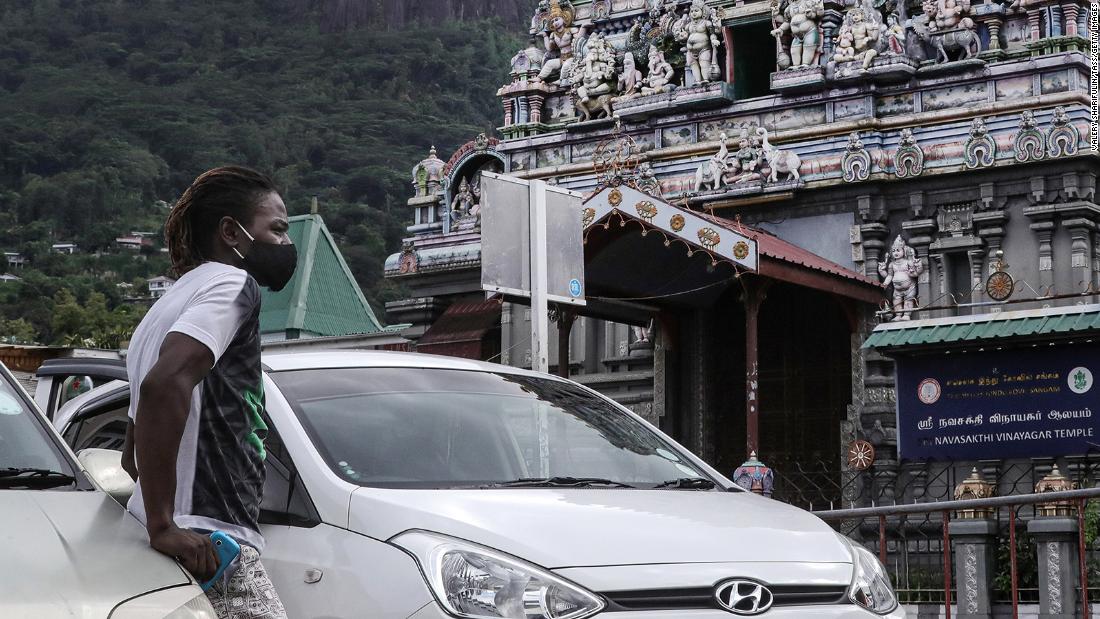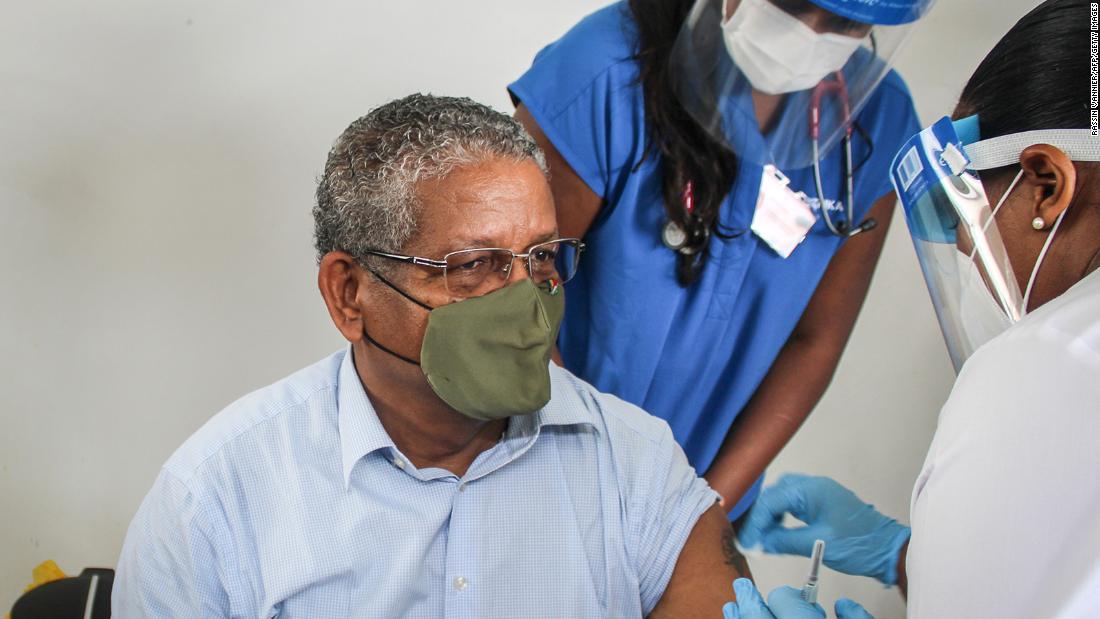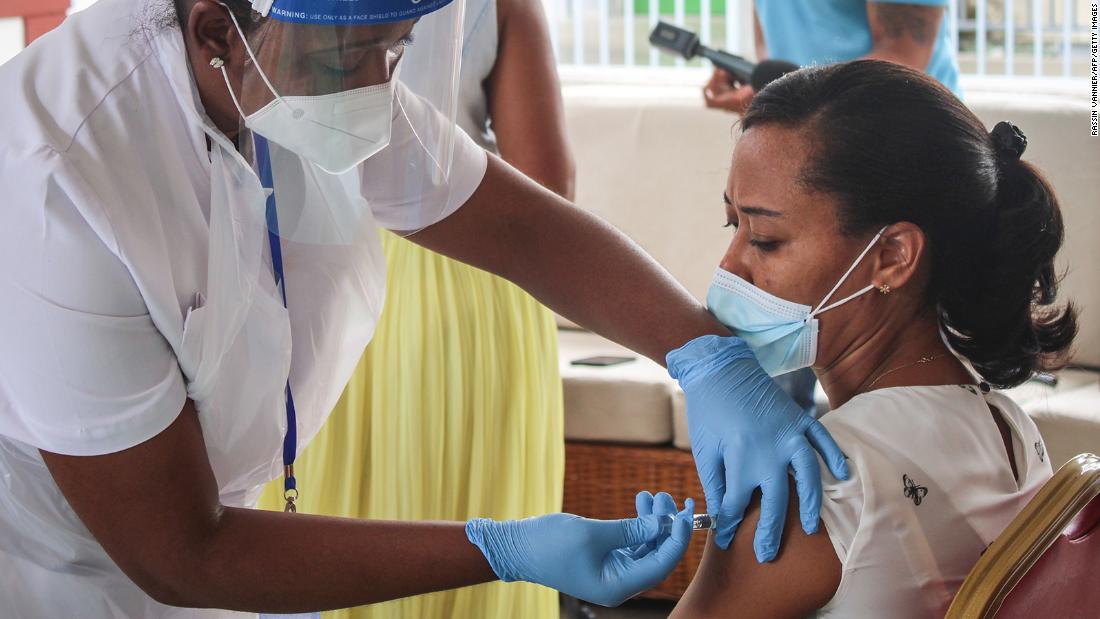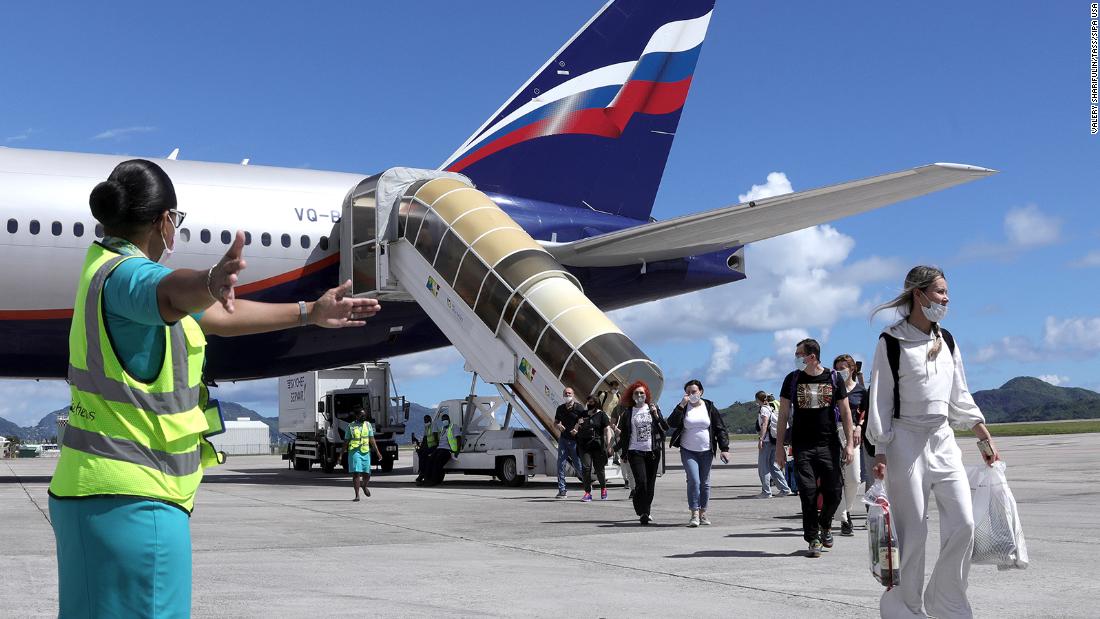The Seychelles is 60% vaccinated, but still infections are rising. That's not as bad as it sounds
While other nations struggle to secure enough vaccines, the Seychelles is in the enviable position of having already fully immunized more than 61.4% of the population.
But that hasn't been enough to stop the spread of Covid.
Over the past month, case numbers have been rising in the Indian Ocean archipelago, prompting authorities to impose restrictions in the country of 98,000 people. Data released Thursday shows there are more than 2,700 active cases.
Of the current active cases, 33% have been fully vaccinated, according to the Ministry of Health.
On face value, the fact the Seychelles, with such high vaccination coverage, is still facing an outbreak calls into question whether countries can inoculate themselves out of the pandemic.
Experts and local officials, however, say the Seychelles outbreak isn't a sign the vaccines aren't working.
Either way, the tropical nation is a reminder that even countries with high levels of vaccination can't drop their guard.
The situation in Seychelles
Just over a month ago, the Seychelles was so confident with its Covid-19 handling that it dropped restrictions for most tourists.
With few cases and a mass vaccination campaign underway, the tourist-dependent country reopened its borders to almost all international travelers, meaning anyone with a negative PCR test could enter the country without quarantining. It was a crucial step for a country where tourism directly or indirectly generates about 72% of GDP and employs more than 30% of the population. By that point, the country had reported fewer than 3,800 cases and 16 deaths.
Since then, total cases have more than doubled to 9,184 cases and 32 deaths, according to Ministry of Health figures released at a press conference Thursday.
It's not clear what led to the spread, although Sylvestre Radegonde, the minister for foreign affairs and tourism, said the virus had likely been in the country all along and had spread as vaccination made people more complacent. Improved contact tracing and testing had also helped authorities catch more cases.
"Over the last few months, after vaccination, people have seen that anybody getting infected is not getting seriously sick, nobody is dying, nobody is getting a lot of complications," he said. People in the islands -- who he said love to party -- have been socializing without taking precautions. "People have let down their guard."
The Seychelles is relying on China-made Sinopharm and Covishield, the AstraZeneca vaccine made in India. Of all fully vaccinated people, 57% received Sinopharm, which was given to those ages 18 to 60, while 43% took Covishield, which was given to those over 60.
Around 37% of positive cases from the week to May 8 had been fully vaccinated, the government said, although it has not released data on which vaccines they received. The government hasn't released data on the age breakdown of Covid-19 patients.
Around 20% of those who were admitted to hospital for treatment had been vaccinated, but their cases weren't serious, the Ministry of Health said Monday. Almost none of the critical and severe cases requiring intensive care had been vaccinated, and no one who has been vaccinated has died of Covid-19.
Radegonde said Thursday that only two people in the country are in intensive care.
"The conclusion is that the vaccines are protecting the people. Those who have been vaccinated are not developing any complications," Radegonde said. "We remain confident that the vaccines -- both of them -- have helped the country. Things would have been worse."
CNN has reached out to the Seychelles Ministry of Health and the Health Care Agency for comment.
What this tells us about vaccines
To some, vaccinated people getting sick with Covid seems to suggest the vaccines aren't working. But local authorities, experts and the World Health Organization (WHO) say the Seychelles' experience is broadly in line with expectations.
Although both vaccines have been approved by the WHO, neither vaccine is 100% effective against Covid-19 -- AstraZeneca claims a 76% efficacy against symptomatic coronavirus disease and 100% efficacy against severe or critical disease or hospitalization, while Sinopharm has an efficacy rate of 79% against symptomatic coronavirus or hospitalization, according to data from a large multi-country Phase 3 trial.
Dr Richard Mihigo, program coordinator for vaccine preventable diseases, at WHO regional office for Africa, said Seychelles' data matched evidence Covid-19 vaccines are highly effective at preventing severe disease, hospitalization and deaths.
"Until everyone is protected, there is no reason why the disease would not continue to spread," he said in an email, adding that WHO teams are continuing to review the data, assess progress, and understand the trends in the country.
President of Seychelles Wavel Ramkalawan receives the first dose of the Covid-19 vaccine at the Seychelles Hospital in Victoria on January 10, 2021.
Michael Z. Lin, associate professor of neurobiology and bioengineering at Stanford University, said vaccine efficacy rates meant about 20% of the population would still be susceptible to the virus, even if they were all vaccinated.
"It's not a surprise if the virus is going to continue infecting some people, the unvaccinated and some breakthrough cases of the vaccine," he said.
But on the positive, people who had been vaccinated seemed to have a lower chance of being hospitalized with Covid than those who hadn't been vaccinated, he said.
Of course, there are gaps in the data -- crucial things that would give us a better idea of how the vaccines perform.
It's not clear, for instance, what proportion of positive cases took Covishield compared with Sinopharm.
It's also unclear what variants are circulating or how widespread they might be. Seychelles News Agency reported last month that the variant first identified in South Africa is present in the Seychelles, but it has not yet reported the Indian variant. Radegonde said it was possible other variants were present, but limited genomic testing meant they hadn't yet been detected.
If the variant first identified in South Africa is widespread, though, that could impact vaccine efficacy. AstraZeneca has been shown to provide only "minimal protection" against mild and moderate Covid-19 from the South African variant.
What does this mean for life post-vaccination?
The Seychelles is a reminder that even after widespread vaccinations, infections are unlikely to stop completely.
The vaccines available are able to reduce serious infections, although they may not give sterilizing immunity -- or complete protection -- against Covid-19, said Jeremy Lim, an associate professor at the National University of Singapore (NUS)'s Saw Swee Hock School of Public Health.
"It's just a reflection of perhaps how naive or how how foolishly optimistic we are," he said.
But Cassie Berry, a professor of immunology at Murdoch University in Perth, notes the situation in the Seychelles wouldn't necessarily be mirrored worldwide.
A medical personel injects the first dose of the Chinese Covid-19 vaccine produced by Sinopharm at the Seychelles Hospital in Victoria, on January 10, 2021.
The rate of infection for vaccinated people would depend on a number of factors, including the kind of vaccine they received and the genetics of the population. Herd immunity would be reached faster in countries using vaccines with a higher efficacy rate, she said. Pfizer, for instance, has an efficacy rate against severe disease of more than 90%.
Lin said that getting any vaccine was "more desirable" than remaining unprotected and being exposed to the 1% death rate of the disease. "The vaccines have been very effective at preventing death," Lin added. "It's definitely advantageous to take the vaccine you can get, rather than wait for something perfect."
And Jennifer Huang Bouey, an epidemiologist at the California-based think tank RAND Corporation, noted that not every country has the option of getting one of the more effective vaccines -- especially given the temperature-controlled supply chain that some vaccines require.
A cautionary tale
The Seychelles is a vaccine success story. But it's also a cautionary tale that vaccines aren't a cure-all -- and that countries need to be wary of new variants and transmission, Berry said.
"We're all racing to be vaccinated, but we still need to remember social distancing and fresh air and masks are very good at preventing transmission," she said. "I think it's going to simmer for quite some time."
Bouey said there was increasing consent among public health professionals that while vaccines are critical for mitigating Covid-19, they won't eliminate transmissions or outbreaks.
"Covid is not going to suddenly disappear. The most likely scenario is that the world will just have to live with Covid," National University of Singapore's Lim said.
Passemgers leave a Boeing 777-300ER plane from Russia to Mahe Island, Seychelles, in April 2021.
That's certainly the attitude in the Seychelles, where tourism took a devastating hit last year. With widespread vaccination, Radegonde said getting seriously ill from Covid was less of a concern -- a bigger concern was the impact higher case numbers could have on the economy.
So far, there's been no impact -- around 500 visitors are arriving each day, said Radegonde, the tourism minister.
"If the situation worsened to such an extent that the tourists stop coming, it would be a big worry," he said. "Seychelles remains open to visitors. We welcome everybody. We have absolutely no intention to change that."
Seychelles appears to have adopted the view that Covid with minor symptoms is an acceptable price to pay.
But while it was fine to have Covid circulating in their populations, countries needed to do more than just vaccinating, Lim said. That included adequate border control, widespread testing, and hospitals that had capacity to cope with outbreaks.
Stanford's Lin agreed: "You can't just throw away the public health playbook once you've vaccinated 60% of your population."




